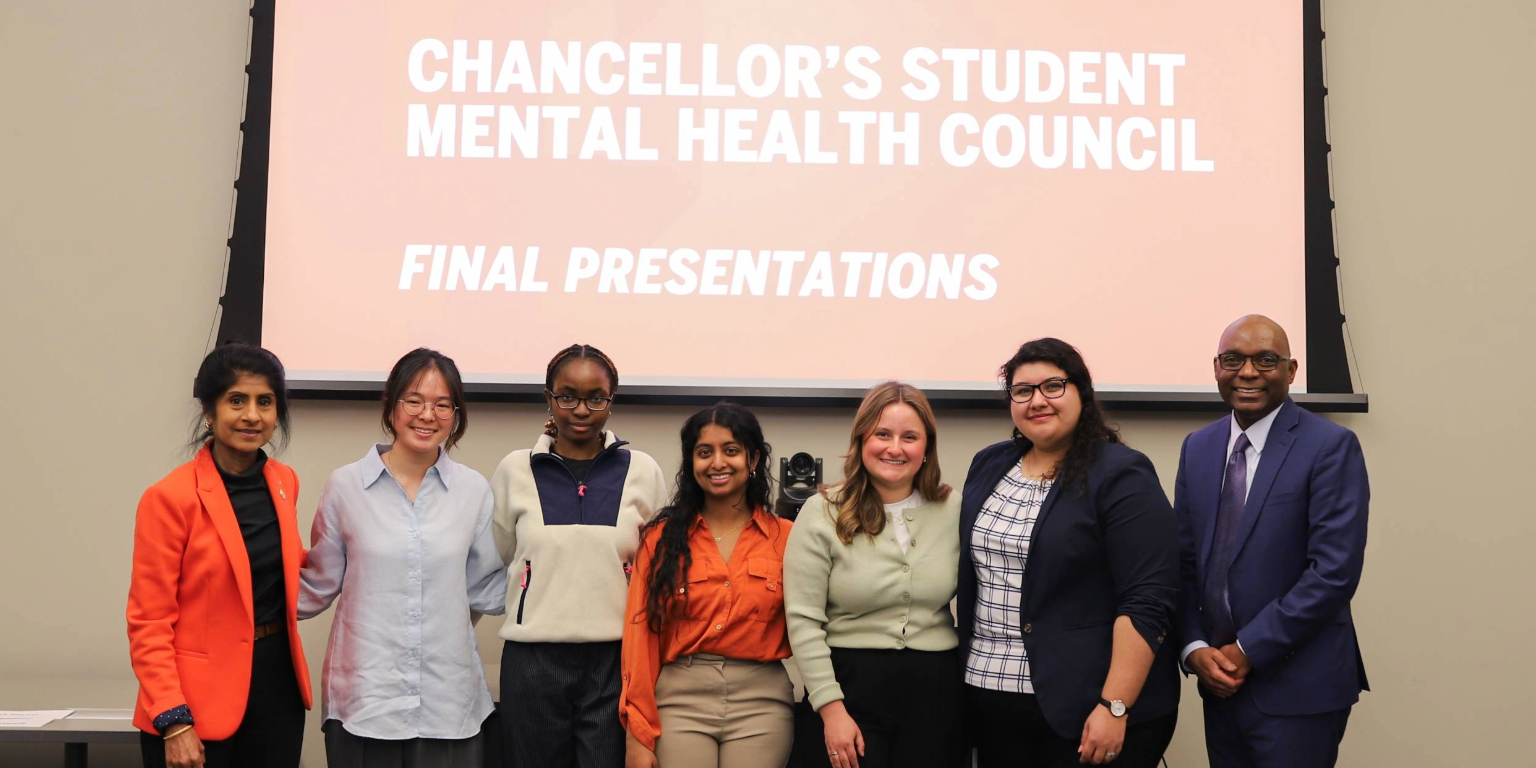Bridging the gap: Student access to IU mental Health Resources
Sofia Breuer, Cassandra Carrillo and Yamana Uno examined how students navigate campus mental health services like Counseling and Psychological Services (CAPS) and the Clinical Psychology Mental Health Center. Their project focused on identifying key barriers that prevent students from getting the help they need.
Through focus groups, they found that students often had trouble fitting mental health-related appointments into their schedules or thought they couldn’t access services outside of standard business hours. Many also said the process of reaching out felt overwhelming, especially for those already under stress. Undergraduate students were generally more familiar with available services and reported lower stress levels compared to graduate students.
"We wanted to better understand how students experience the mental health resources available to them," said Carrillo. "We asked questions like, ‘Do students perceive campus mental health resources as accessible? If not, what are the perceived barriers to that accessibility?'"
Their recommendations included:
- Increasing outreach from mental health professionals
- Offering informational webinars to clarify available services
- Creating a centralized Canvas course with all mental health resources in one place and promoting CAPS’ existing Canvas course
Mental health matters: Faculty make the difference
Ananya Pendela and Simbiat “Simbi” Abdul focused on the role faculty can play in supporting student mental health. Their research explored how confident instructors feel in recognizing and responding to students who may be struggling.
Surveys and focus groups revealed that:
- 45% of faculty respondents felt only somewhat confident identifying signs of distress
- 41% of faculty respondents had never received formal mental health training
- Many faculty were unclear on how or where to refer students for help
"Academic struggles often link to personal challenges," said Pendela. The team emphasized the importance of giving instructors the tools to recognize when a student may need support and to help guide them toward the right resources.
Their recommendations included:
- Providing consistent training on mental health topics
- Developing clear and accessible referral tools
- Encouraging a unified approach to student support across campus
Collective insight
Both projects pointed to a shared solution: the creation of a centralized Canvas page where students and faculty could easily access mental health resources, referral tools and support services. The Council believes this single point of access could help correct misinformation, reduce confusion, improve visibility and make it easier for the campus community to connect with help when they need it.
Through their research, CSMHC continues to support collaboration between students, faculty and university leaders in improving mental health support on campus.
Learn more about the Chancellor’s Student Mental Health Council.




